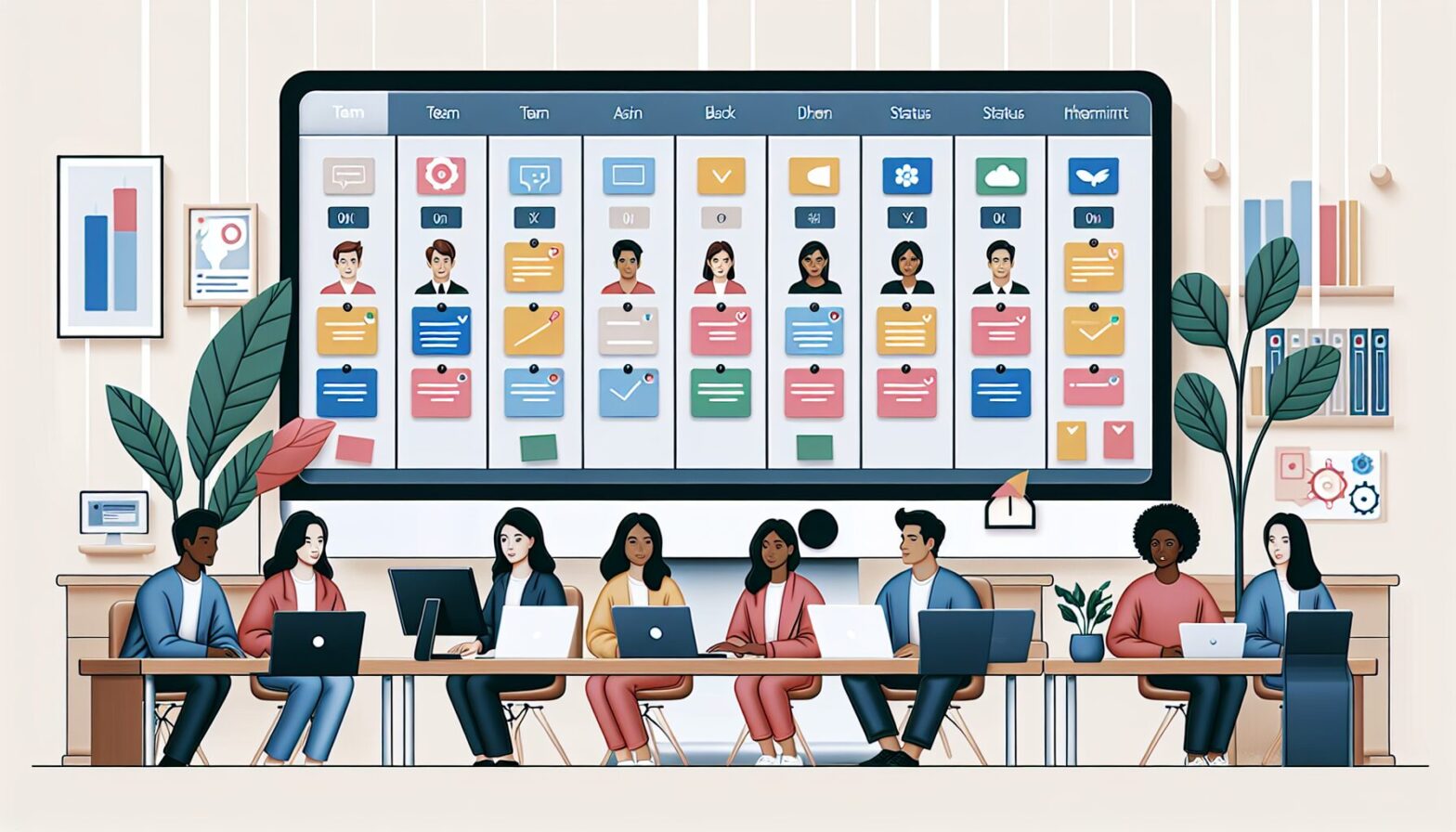The Rise of Online T-Card Systems: A New Era in Task Management
In recent years, task management platforms have become indispensable tools for businesses striving to enhance productivity and streamline workflows. While Monday.com has long been a popular choice for project management, online T-card systems are carving out their own niche, offering unique advantages that appeal to a variety of teams and industries. The online T-card system, rooted in the traditional physical T-card method, brings a refreshing simplicity and visual clarity that many digital-first platforms sometimes lack.
Unlike Monday.com, which can feel overwhelming due to its plethora of features and complex customisations, online T-card systems focus on straightforward task visualisation. The classic T-card layout—where tasks are represented as individual cards arranged by status or stage—translates beautifully into digital form, allowing users to quickly grasp project progress without sifting through layers of menus or dashboards. This simplicity can significantly reduce onboarding time and foster better engagement among team members who prefer a more tactile, intuitive experience.
Moreover, online T-card systems often integrate seamlessly with existing communication tools, promoting real-time updates and collaboration. This ease of use is particularly beneficial for smaller teams or organisations that need an efficient, no-frills solution without the steep learning curve or extensive setup that platforms like Monday.com sometimes demand.
Policy Frameworks Driving the Growth of Online T-Card Systems
An interesting and often overlooked factor contributing to the growing popularity of online T-card systems is the evolving policy landscape around digital workspaces and data security. Governments and regulatory bodies worldwide have been placing increasing emphasis on data privacy, compliance, and workplace efficiency, indirectly favouring tools that are transparent, easy to audit, and adaptable to compliance requirements.
Online T-card systems typically operate on simpler data models with less complexity in permissions and integrations compared to sprawling platforms like Monday.com. This simplicity translates into fewer vulnerabilities and easier adherence to stringent data protection policies such as GDPR in the UK and EU. Organisations are therefore more comfortable adopting these systems knowing they minimise compliance risks.
Additionally, government incentives aimed at digitising small and medium enterprises (SMEs) have often included subsidies or support for implementing user-friendly digital tools. Because online T-card systems tend to be more affordable and require less technical expertise to deploy, they have become natural beneficiaries of such policies. This trend is accelerating their adoption in sectors where regulatory compliance and cost-effectiveness are paramount.
User Experience: Why Less Can Be More
One of the biggest selling points of online T-card systems over Monday.com lies in user experience. While Monday.com boasts an impressive array of features—ranging from automation to detailed analytics—this abundance can overwhelm users who simply want to track tasks clearly and quickly.
Online T-card systems prioritise minimalism and clarity. Their interfaces typically present tasks in a clean, drag-and-drop format that mimics physical boards familiar to many workers. This tactile resemblance reduces cognitive load and encourages participation from all team members, including those less tech-savvy.
Furthermore, by focusing on core functionality without superfluous options, online T-card systems foster a culture of simplicity and efficiency. Teams spend less time navigating software quirks and more time focusing on getting work done. The lower barrier to entry also means quicker adoption across departments, which can be a critical advantage during periods of organisational change or rapid scaling.
Summary: Why Online T-Card Systems Are Gaining Ground
In summary, online T-card systems offer a compelling alternative to Monday.com by embracing simplicity, visual clarity, and regulatory friendliness. Their roots in traditional task management methods provide a familiar framework that translates effectively into the digital workspace.
Supported by favourable policy environments that prioritise data protection and SME digitisation, these platforms are positioned well for continued growth. Their user-centric design appeals especially to teams seeking straightforward task tracking without the complexity or cost overheads associated with more feature-heavy project management tools.
For businesses evaluating their task management options, considering an online T-card system could mean faster onboarding, improved compliance, and more engaged teams—all crucial elements for sustained productivity in today’s fast-paced working world.
Notes
- Online T-card systems often reduce onboarding time by up to 40% compared to complex project management software.
- SMEs adopting simple digital task tools report a 25% increase in team collaboration efficiency.
- Regulatory policies like GDPR encourage the use of compliant tools with clear data handling processes.
- Market research indicates a 30% year-on-year growth in the adoption of lightweight task management platforms.
